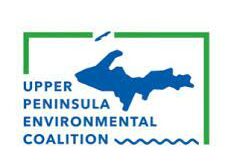WASHINGTON, D.C. – Following news reports that President Trump is asking the Army Corps of Engineers to identify funds that could be used for construction of a border wall, U.S. Senators Debbie Stabenow (D-MI), co-Chair of the Senate Great Lakes Task Force, and Gary Peters (D-MI), member of the Senate Great Lakes Task Force, wrote to the Assistant Secretary of the Army (Civil Works) to request an update on any intentions to reallocate funds away from the Soo Locks and other Michigan infrastructure priorities.
“We write to receive assurances that the Army Corps is not considering reallocating funding away from the Soo Locks, and other agency projects critical to the safety and wellbeing of Michigan and the entire Great Lakes,” the Senators wrote. “Likewise, it is critical that no funds be diverted from projects essential to Great Lakes navigation and public safety. We would [also] strongly oppose any effort to redirect funding allocated to combat Asian carp.”
Last year, President Trump signed the Senators’ bipartisan legislation authorizing Congress to provide the necessary funding to construct another Poe-sized lock. There have been no comprehensive improvements to the Soo Locks in nearly 50 years. A sudden closure would have devastating economic consequences and could cause Michigan’s unemployment rate to hit 20 percent.
A copy of the Senators’ letter may be found below.
January 14, 2019
The Honorable R.D. James
Assistant Secretary of the Army (Civil Works)
108 Army Pentagon
Washington, D.C. 20310
Dear Assistant Secretary R.D. James:
President Trump has stated that he has “an absolute legal right” to declare a national emergency in order to secure the southern border. Recent reports indicate the President had considered using Army Corps funding to build a barrier along the U.S.-Mexico border. We write to request an update on any intentions by your agency to change the spending levels outlined in the Work Plan for Fiscal Year 2019. Namely, we write to receive assurances that the Army Corps is not considering reallocating funding away from the Soo Locks, and other agency projects critical to the safety and wellbeing of Michigan and the entire Great Lakes.
It is imperative that no funding be diverted from the operations and maintenance of the Soo Locks or the initial work necessary to construct a new Poe-sized lock. As you are aware, the Soo Locks in Sault Ste. Marie, Michigan, is a critical gateway though which 80 million tons of commercial goods pass annually. A sudden closure would have devastating economic consequences and there have been no comprehensive improvements to the facility in nearly 50 years. The FY2019 Work Plan includes $32.38 million to begin the process for building a much-needed new lock and over $15 million to ensure the existing locks remain operational. We are on borrowed time and it is imperative that this funding not be reallocated or reduced.
Likewise, it is critical that no funds be diverted from projects essential to Great Lakes navigation and public safety. The FY2019 Work Plan outlines spending for 26 dredging projects within the Great Lakes, totaling $48 million. This includes five new dredging projects and three projects with additional dredging funds added. Maintenance of these harbors is critical to commercial and recreational navigation, public safety, and the economies of our state and local communities.
Lastly, we would strongly oppose any effort to redirect funding allocated to combat Asian carp. This includes the resources in the Work Plan dedicated to operating and maintaining the electric dispersal barriers in the Illinois River as well as the funding to complete GLRMIS-Brandon Road Chief’s Report. This funding is of critical importance in the near- and long-term to preventing Asian carp from causing great harm to the Great Lakes.
We have continually communicated with you in person and in writing the undeniable importance of these projects to the well-being of the Great Lakes and to the economies of Michigan, the region, and the country. We look forward to receiving a prompt response confirming that these funds in the FY2019 Work Plan are not being redirected to pay for constructing a barrier on the U.S.-Mexico border.
 Keweenaw Report Your Source for Local News and Sports
Keweenaw Report Your Source for Local News and Sports






